



Bronwyn Clark
Chief Executive Officer
Aboriginal and Torres Strait Islander Peoples were our first pharmacists. As part of the oldest surviving culture in the world they've understood the pharmacopoeia and pharmacology of what is happening within their environments for thousands of years. Their practices are worth learning and embracing.
We need more pharmacists who are able to deliver culturally safe care to ensure that Aboriginal and Torres Strait Islander peoples are receiving healthcare on their terms - not how western society determines it to be.
While we work on building our workforce, our strategy forward is to ensure that all pharmacy graduates and pharmacists can practise in culturally safe ways.
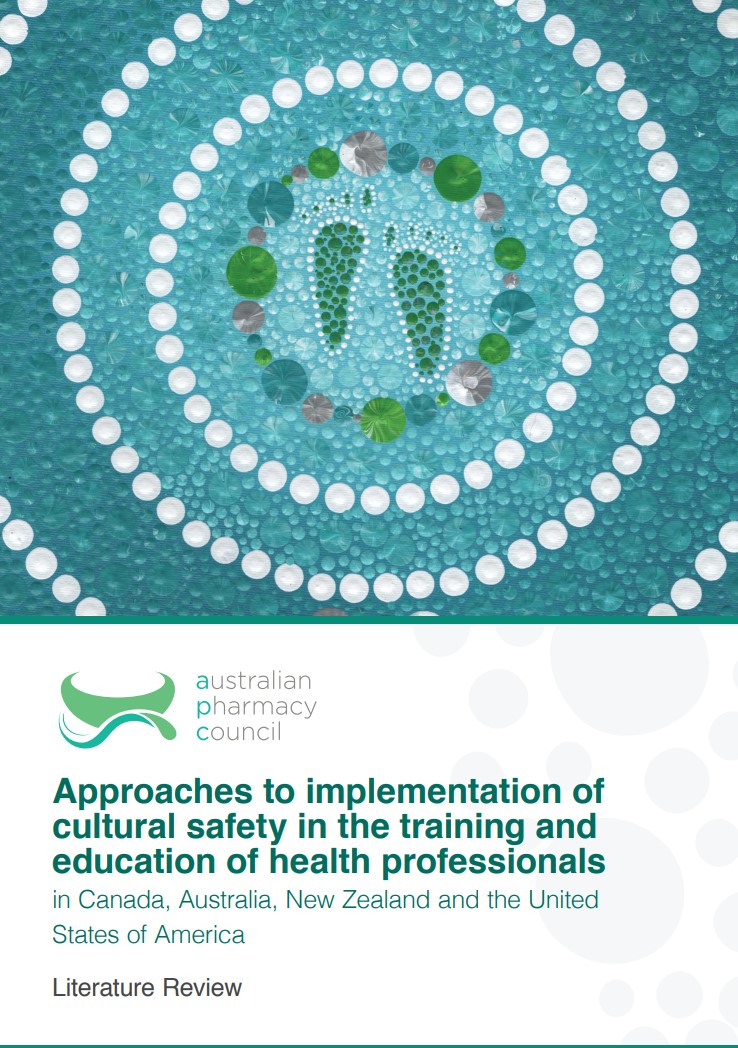 Why do we need cultural safety embedded into curriculum? What are countries with similar colonial histories doing about it?
Why do we need cultural safety embedded into curriculum? What are countries with similar colonial histories doing about it?
I want to emphasise the notion of un-learning and re-learning; being open to learning new ways of knowing, being and doing that aren't necessarily the traditional western ways. Recognising the 'hidden curriculum' that influences what we value and teach students is key to this concept. Embracing this in pharmacy education will engender more trust and engagement within our healthcare system.
Our literature review explores this. For more read Approaches to implementation of cultural safety in the training and education of health professionals in Canada, Australia, New Zealand and the United States of America.
To complement the literature review, we developed a series of conversations, delivered as webinars and podcasts. Our latest webinar gave rise to a new hope and determination to make the pharmacy profession a safer space for Aboriginal and Torres Strait Islander peoples.
Central to the conversations was story-telling - a crucial element of reconciliation and healing the impacts of our shared history. It enhances understanding and strengthens appreciation of truth, culture and perspectives.
Throughout the series we were joined by members of our Indigenous Health Strategy Group:
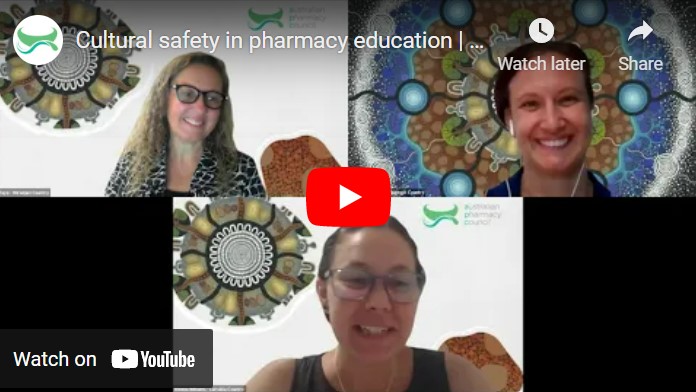
In a heartening moment, we celebrated the presence of the first as well as the forthcoming registered pharmacists who are Aboriginal - the inspirational Associate Professor Faye McMillan AM, a Wiradjiru yinaa and the face of the future, Alex Burke, a Wiradjuri man, pharmacy intern and PhD candidate. His initiatives are described later in this article.

Alex Burke, Associate Professor Faye McMillan AM
Faye, the first registered pharmacist who is Aboriginal, is now Deputy National Rural Health Commissioner and Member of Order of Australia medal recipient. As the saying goes, "you cannot be what you cannot see". Faye is someone Aboriginal and Torres Strait Islander Peoples following this path look to and think, "I can be that".
We also launched our Reflect Reconciliation Action Plan - our commitment to start evolving and enhancing all aspects our organisation, its people and services.
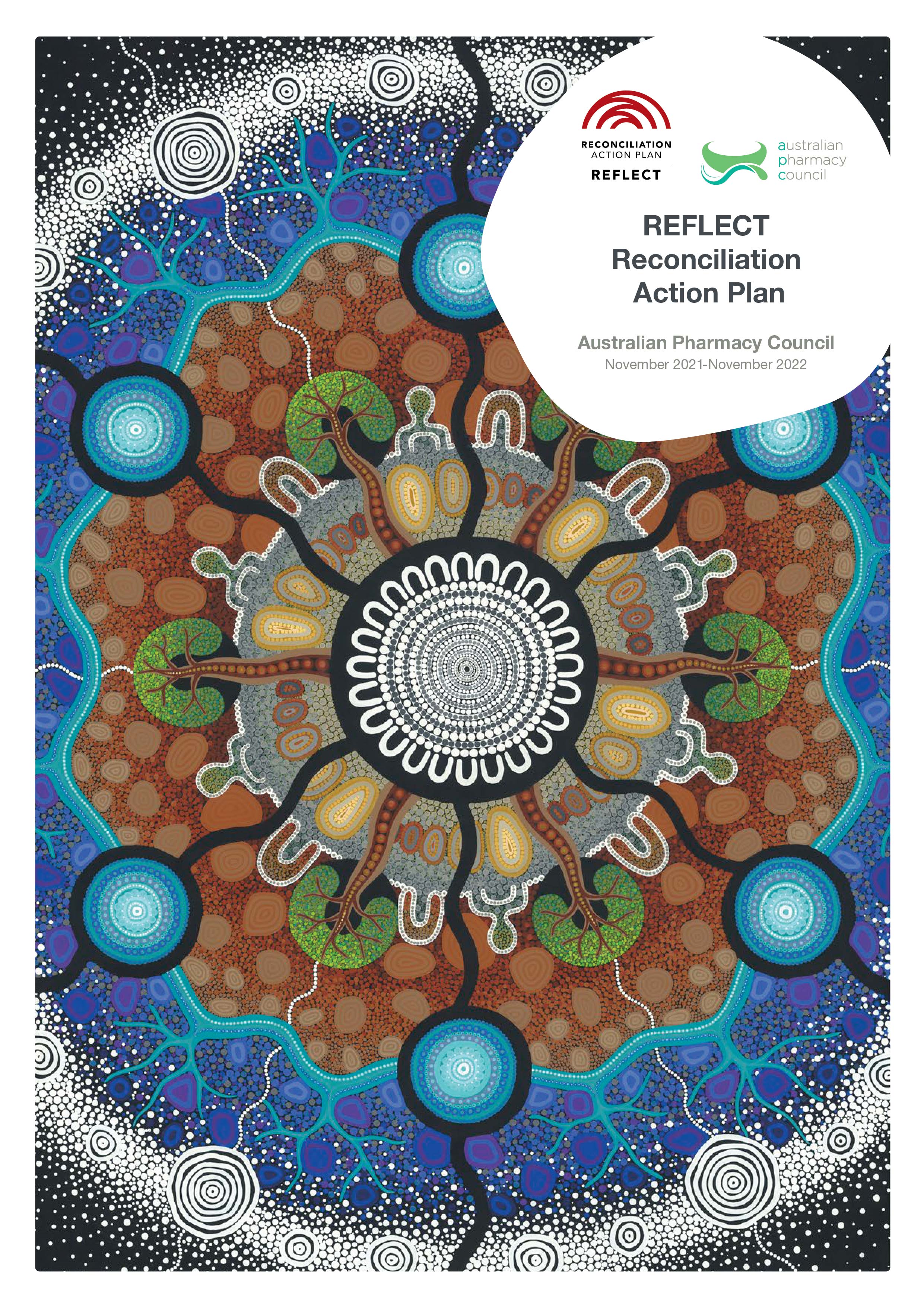
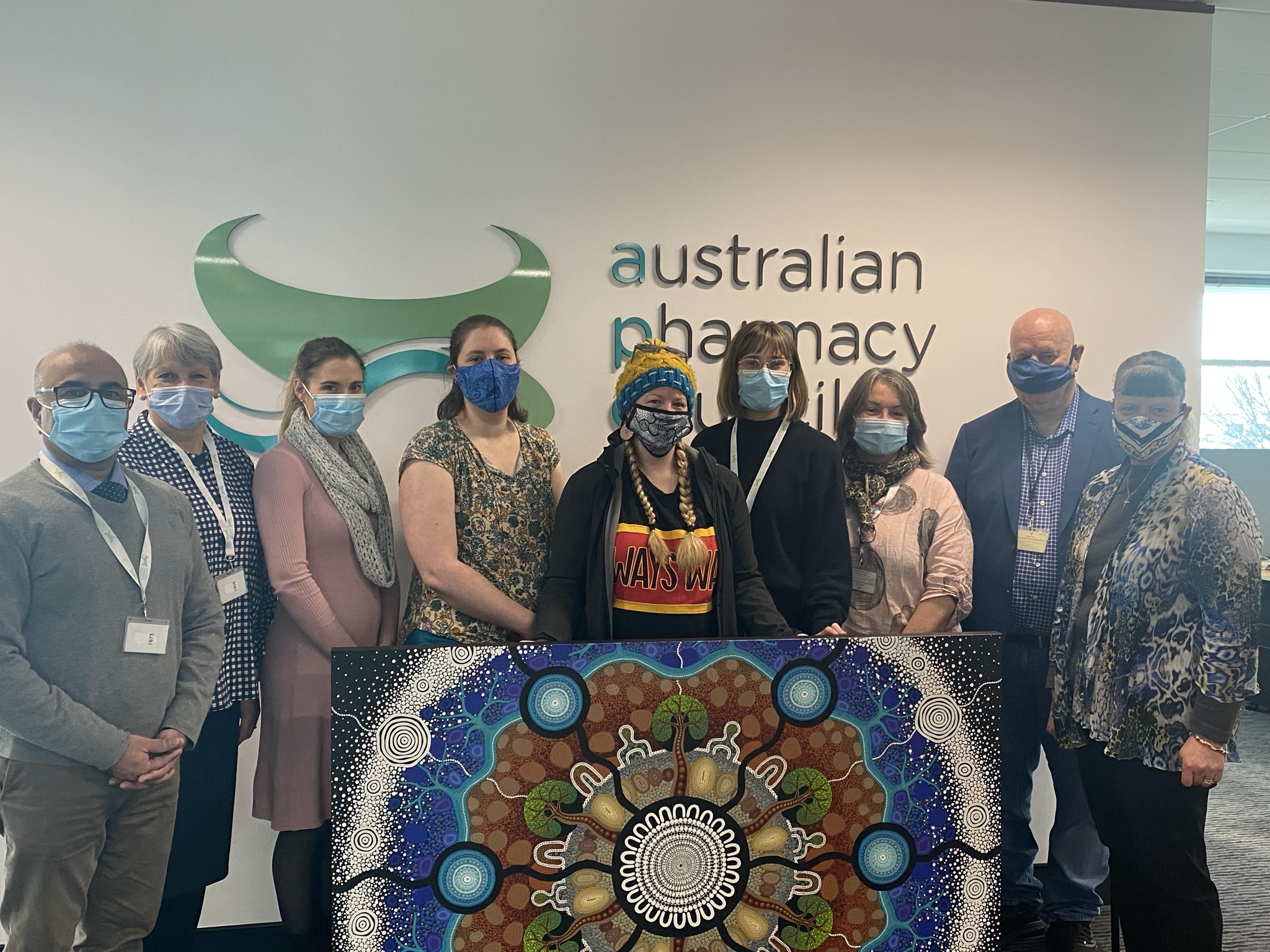
At the core of all our decisions relating to our strategy, is our Indigenous Health Strategy Group. The establishment of this group was an important milestone in our journey to embedding cultural safety into pharmacy education and beyond it.
"This is what true ally ship looks like. The true championing of the inclusion of Aboriginal and Torres Strait Islander Peoples into the profession," said Associate Professor Faye McMillan AM.
"For some, it won't seem like a big step, but for us, its very much standing on the edge of the unknown and putting our faith in others to actively take care of our emotions, in the sense of being on a journey with us but allowing us to lead that journey through our lens."
Aleena Williams spoke about how we approached inclusion.
"No one had ever really come to me and said, 'we're interested in your perspective as an Aboriginal pharmacist,'" she said.
"When I started in pharmacy, my identity was actively withheld from my workplace. I was told not to identify as an Indigenous pharmacy cadet. So to go from that, within a decade, to being told that someone wanted to hear what I had to say was a big moment for me."
As pharmacy education regulators, we have the capacity and responsibility to shift attitudes and alleviate burden. We need to do that under the leadership of Aboriginal and Torres Straight Islander people to the degree they are comfortable with. We need to support them to lead, because it's not their weight to carry alone, nor do they have all the answers.
"In this group, I always felt really safe being an Aboriginal person. And that's not something I always feel," Aleena said.
"One point I'd really like to stress is that I was included to the point where I wanted to be included. I never felt like I had to do anything, or that it was my responsibility to do anything. And that was really important.
"We need reconciliation because there's who I am as a pharmacist, and then there's who I am as a person. And they're not reconciled. They're not together."
Aleena's internal conflict between being who she is, and being a health professional shows just how far we have to go in the health sector. But we are on the right path.
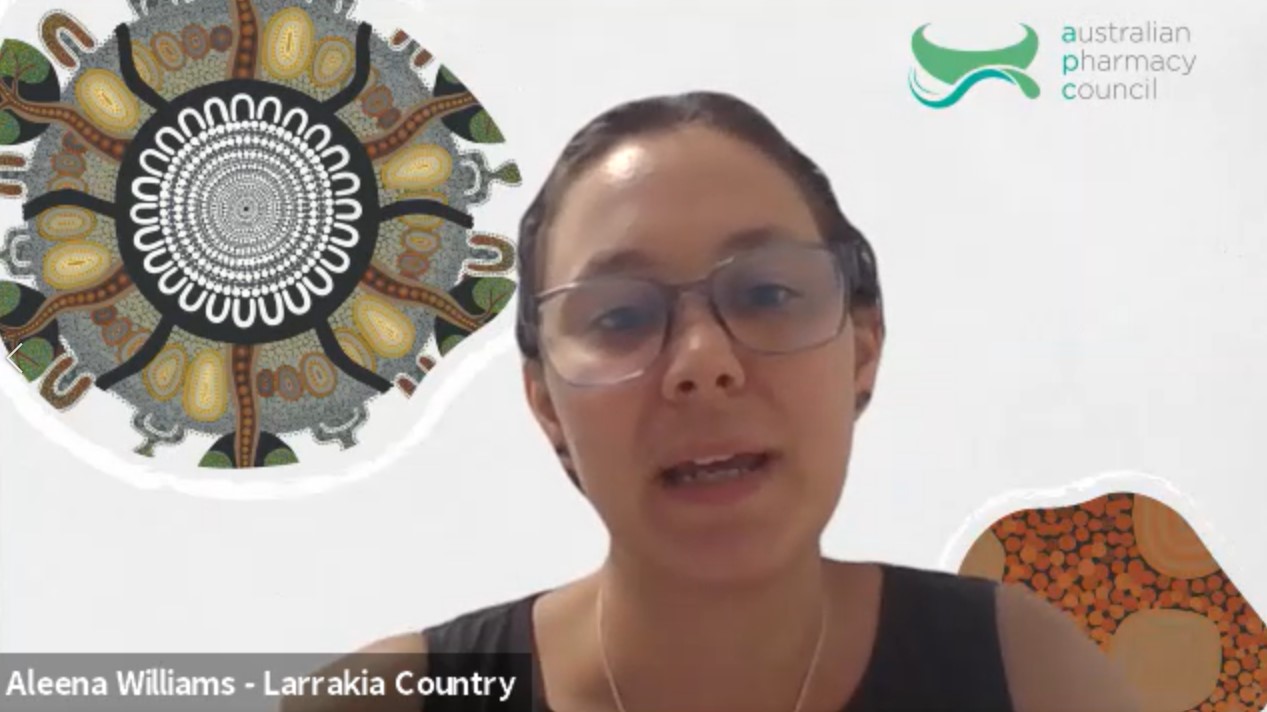
Aleena Williams
Story-telling pays recognition and homage to Indigenous ways of knowing, being and doing. By hearing their experiences, we are now better equipped to play our part in engendering change.
"It's important to know where we've been in order to know where we need to go. If we think about footsteps in the journey, maybe we're walking through that really soft sand, and it's really hot at times, but it will bring us to that beautiful ocean," said Chastina Heck.
Dr Jane Havelka spoke about her experience with racism in pharmacy as a patient and as a woman who is Aboriginal.
"Aboriginal and Torres Strait Islander people will not access services if they are made to feel unwelcome or unwanted. So many people are becoming so unwell and some have even died because they'd rather not go to the service. They would rather not buy their pills or their medication, or see their doctor because they're not feeling safe. We need to embed cultural safety in all services. People need to feel welcome to receive healthcare."
We saw from leaders in the pharmacy sector that there is a strong will and desire to do better, both through pharmacy degree and continuing professional development programs. We can amplify the contribution they are already making to enhance cultural safety, which leads me to my next point.
Our plans moving forward involve partnerships with the Council of Pharmacy Schools and the Pharmacy Board of Australia. We're the accreditation authority, we set the standards, but we aren't delivering the training. These partnerships ensure we can support education providers in this delivery.
"I want to highlight the importance of acknowledging and valuing Indigenous ways of knowing, and bringing about the total wellbeing of their communities, not only focusing on the disease aspect, but it's that holistic approach that this partnership will enable," said Professor Debra Rowett, President, Council of Pharmacy Schools, Australia and New Zealand.

Chastina Heck, Bronwyn Clark, Professor Debra Rowett
Making tidal waves is Alex Burke, a Wiradjuri man, pharmacy intern and PhD candidate.
As part of his thesis, Alex has been interviewing university pharmacy Heads of Schools across Australia to understand how they are currently implementing cultural safety within their curriculum.
His contribution to the academic field is pivotal for the future of health outcomes of Aboriginal and Torres Strait Islander peoples. The research he undertakes will help us in our initiatives designed to enhance cultural safety in pharmacist education. We're delighted to be able to learn from him and support him in his work.
Alex's drive demonstrates the strength of the next generation. They've got hold of the reins now and they're not slowing down. Nor should they.
Dr Erica Sainsbury, the primary author of the literature review, commented on the need for change.
"It needs to be experienced. I came out of this as a different person. As an educator, as a pharmacist, as a person, we need to look at our personal understanding before we change our educational and professional practice," she said.
"Understand where you're at now, understand your own assumptions, your own biases, world views, attitudes, beliefs and understanding, but don't stay there. You can't change your practice until you're aware of your own situation and aware of your need to change."
Emeritus Professor Lloyd Sansom AO commended the initiatives.
I wish to congratulate the Australian Pharmacy Council on its commitment to and its progress towards reconciliation with our First Nations People. I am extremely proud to be associated with an organisation that has shown outstanding leadership in embedding cultural safety in pharmacy education to address health inequalities. The APC Reconciliation Plan is a blueprint for other health professions to follow.
The promotion and engagement of Aboriginal and Torres Straits Islander pharmacists to lead us through this journey is outstanding and everyone at the APC should be proud of their focus to listen, to learn and to change things for the better.
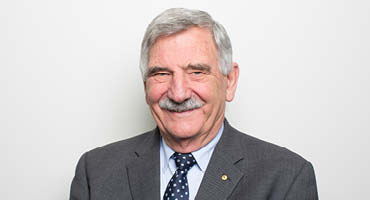
Emeritus Professor Lloyd Sansom AO